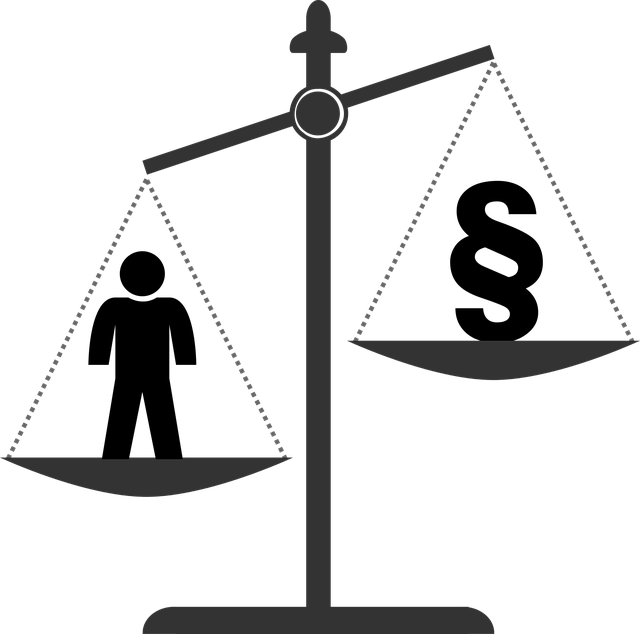Sentencing guidelines in the RF Securities Industry significantly impact penalties for offenses like fraud and insider trading. These guidelines ensure fairness by balancing accountability with industry compliance, offering reduced penalties through cooperation or mitigating factors. They guide judicial decisions on prison terms, fines, restitution, and deter future misconduct, especially with stricter rules for insider trading. Corporate responsibility is also assessed, affecting overall penalties and regulatory actions across politics and philanthropy. Adherence to these guidelines is crucial to avoid substantial fines and reputational damage.
The RF Securities industry is subject to stringent regulation, with sentencing guidelines playing a pivotal role in determining penalties. This article delves into the intricacies of RF Securities Industry Regulation, exploring key factors that influence punishments. We examine the distinction between criminal and civil offenses and their impact on penalties, while highlighting the crucial roles of regulatory bodies in enforcement. Additionally, we discuss evolving trends in RF securities legislation and how they shape the regulatory landscape. Understanding these dynamics is essential for navigating this complex field.
- Understanding RF Securities Industry Regulation
- Sentencing Guidelines: Key Factors in Penalties
- Impact of Criminal vs Civil Offenses on Punishments
- Role of Regulatory Bodies in Enforcement
- Evolving Trends in RF Securities Legislation
Understanding RF Securities Industry Regulation

The RF Securities Industry Regulation is a complex web of rules and guidelines designed to ensure fairness, transparency, and integrity within the securities market. At the heart of this regulation lie sentencing guidelines that play a pivotal role in shaping penalties for non-compliance and wrongdoing. These guidelines serve as a compass, steering regulatory bodies and courts in imposing sanctions that are both just and consistent across all stages of the investigative and enforcement process.
Understanding how these sentencing guidelines affect penalties is crucial for anyone navigating the general criminal defense landscape. By setting clear parameters for offenses ranging from fraud to insider trading, they provide a framework that protects investors while offering potential leniency for cooperation or extenuating circumstances. This balance ensures that penalties are meted out fairly, reflecting the severity of the offense and promoting a culture of compliance within the industry.
Sentencing Guidelines: Key Factors in Penalties

Sentencing Guidelines play a pivotal role in determining penalties within the RF Securities Industry, significantly influencing judicial decisions. These guidelines are designed to ensure fairness and consistency in sentencing, taking into account various factors that contribute to the severity of an offense. Key elements considered include the nature and extent of the wrongdoing, any financial gain or loss incurred, the level of intent, previous criminal history, and the potential impact on investors and the industry as a whole.
For high-stakes cases involving significant financial losses or complex fraud schemes, sentencing guidelines often result in stringent penalties. Achieving extraordinary results in such scenarios may involve not only substantial fines but also imprisonment for individuals found guilty. Additionally, the guidelines consider the role of corporate responsibility, meaning organizations can be held accountable through enhanced penalties and regulatory actions, extending to philanthropic and political communities as well.
Impact of Criminal vs Civil Offenses on Punishments

The impact of criminal versus civil offenses on punishments within the RF Securities industry is a nuanced aspect that significantly influences regulatory compliance and consequences. When a financial institution or individual professional faces charges, the nature of the offense plays a pivotal role in determining the severity of the resulting penalties. Criminal offenses, often carrying more severe repercussions, are typically prosecuted by government authorities with the goal of retribution and deterrence. These cases usually lead to substantial fines, imprisonment, or both, as dictated by established sentencing guidelines. On the other hand, civil offenses, while still consequential, tend to focus on compensation and restitution rather than punishment.
The sentencing guidelines for financial regulatory violations vary based on the level of damage caused, the intent behind the action, and prior infractions. These guidelines are designed to promote fairness and consistency in penalty assessments. For instance, a complete dismissal of all charges can be negotiated in certain cases where cooperation with regulators is demonstrated, or where the offense was committed without malicious intent and has minimal impact on stakeholders. Avoiding indictment through plea bargains is another strategy that can result in reduced penalties for less severe offenses, allowing individuals and institutions to repair their reputation within the philanthropic and political communities while still facing accountability.
Role of Regulatory Bodies in Enforcement

Regulatory bodies play a pivotal role in enforcing securities industry regulations by setting and implementing sentencing guidelines that significantly impact penalties for violations. These guidelines act as a framework, ensuring consistency across the country in the treatment of white-collar and economic crimes involving complex financial instruments. The severity of punishment is directly tied to the nature and extent of the misconduct, with more severe consequences for high-stakes cases.
The sentencing guidelines not only dictate prison terms but also fine structures, restitution orders, and other penalties. This approach allows regulatory bodies to effectively deter potential wrongdoers by signaling the substantial risks associated with securities fraud and manipulation. Consequently, it fosters a culture of integrity within the industry, encouraging compliance and ethical practices to avoid stringent penalties that can cripple offending entities and even lead to their demise in extreme cases.
Evolving Trends in RF Securities Legislation

The RF Securities Industry is constantly evolving, mirroring changes in technology, financial markets, and societal expectations. One prominent trend is the increasing scrutiny and regulation of insider trading activities. Sentencing guidelines play a pivotal role in shaping penalties for violations; these guidelines have become more stringent over time, reflecting society’s zero-tolerance approach to financial misconduct. The impact extends beyond individual offenders, as penalties can significantly disrupt corporations involved, thereby deterring future infractions.
Regulatory bodies are also paying closer attention to the interaction between the securities industry and political and philanthropic communities, ensuring transparency and preventing potential conflicts of interest. This heightened focus permeates all stages of the investigative and enforcement process, from initial reporting to prosecution. As a result, both corporate and individual clients must remain vigilant, adhering strictly to regulatory requirements to avoid severe consequences, including substantial fines and reputational damage.
The regulation of the securities industry, particularly through RF Securities Industry Regulation, plays a pivotal role in maintaining market integrity. By understanding how sentencing guidelines influence penalties, we can grasp the complexities of these regulations. This article has explored various facets, from the impact of criminal versus civil offenses to the evolving trends in legislation. Regulatory bodies’ enforcement efforts ensure that market participants adhere to ethical standards, thereby fostering a robust and fair financial landscape. As the industry continues to adapt, staying informed about these regulatory nuances is essential for all stakeholders.






